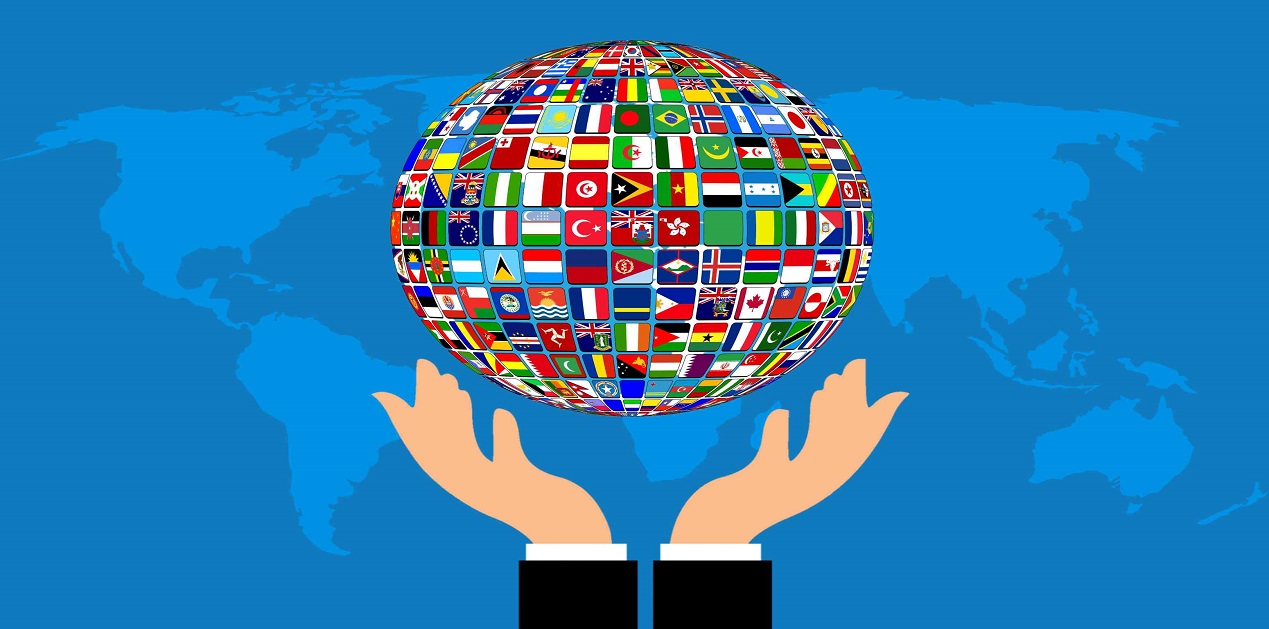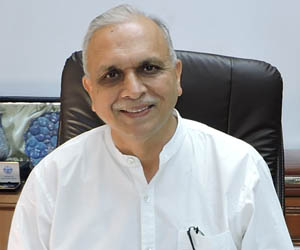While it is difficult to predict the future, one can be reasonably sure that the forces of change unleashed in the last few years will continue to intensify and create unexpected situations. Black swan events are becoming increasingly common. In 2022, we saw the eruption of Russia-Ukraine conflict and in 2023 the Israel Hamas war occurred without notice. The disputed Nagorno- Karabakh area was occupied by Azerbaijan after a 30-year long bloody war between Armenia and Azerbaijan. These wars have claimed thousands of lives, uprooted lakhs of people, created intractable humanitarian crisis and caused seismic changes in regional and global politics. The international community failed to resolve these conflicts. The Russia Ukraine war seems to have reached a stalemate with neither side being able to change the status quo on the ground in any significant way. But this has not lessened the intensity of the war with both sides losing men and material in big numbers. There seem to be little prospect of a settlement.
The Israel-Hamas war could spill over onto other areas. At the start of 2024, the wide region of Middle-East including the shipping lanes in the Gulf region has become unstable. The recent attacks by the Iran backed Houthis on numerous merchant ships in the Red Sea is a pointer. Iran took kinetic action in Iraq, Syria and Pakistan. Pakistan in turn bombed Iran using F-16 planes and drones. All this was done in name of taking out terrorists and their hideouts.
Israel- Iran tensions are rising. The US and UK have resorted to attacking Houthis targets in Yemen using state of the art missiles. The US has accused Iran of supplying money and weapons to the Houthis. India-Middle East Economic Corridor (IMEC), announced at the time of G20, has suffered a setback on account of fresh tensions in the Middle East.
The Indo-Pacific is a region fraught with tension. Taiwan will remain a potential flash point. The DPP candidate Mr Lai has won the presidential election to China’s chagrin. But DPP has lost the majority in the parliament. This makes the situation very complicated. China has declared that ‘reunification’ of Taiwan with the mainland is inevitable. Soon after the Taiwan election, the CCP journal Quishi carried an article by President Xi in which the reiterated China’s opposition to “separatists” and “pro-independence” forces in Taiwan and emphasized the need for consolidation of “patriotic” forces. This indicates that China’s interference in Taiwan and its muscular policy in Taiwan Strait will continue.
Ahead of the US presidential election this year, the Republican and Democrats appear to be at war with each other. The future of democracy in the US is being debated hotly. In the meanwhile, the big question is whether Trump will contest and win the elections. If that happens, there will be another round of uncertainties in global politics as Trump is likely to reverse many of Biden’s policies. What direction will US policy take after the elections? Whatever may be the result of US elections, they will have a global impact.
The strategic rivalry between China and US, which has intensified in the last few years, will shape the global situation in large measure. The world views of the two powers are pole opposite. While the US sees China as a rival to its global supremacy, China views the US as an impediment to its growth. Yet, both countries understand that a military conflict between them will be debilitating and counterproductive for both of them. In 2023, they took steps to find ways to restore bilateral dialogue mechanisms to manage their tensions. These arrangements are fragile and can breakdown on account various reasons ranging from differences over Taiwan, Korean Peninsula, South China Sea to concerns over trade and technology.
Russia has survived the debilitating sanctions posed by the US and the West following the Ukraine crisis. Its economy has not collapsed and Ukrainian counter offensive on the ground has failed to dislodge Russia from the territory it occupied in 2022. Russia has made a decisive pivot, away from Europe, towards the East. The emergence of a strong strategic partnership between Russia and China is a major development, which will complicate US calculations. It has to deal with two rivals, who are strategic par partners, simultaneously.
In the rapidly changing global scenario in which US hegemony is being increasingly challenged, the role of emerging and middle power like India has become important. India utilized the opportunity provided by the G20 presidency to advocate the voice of Global South. Bucking the western pressure, India refused to fall in line with the West and instead strengthened the bilateral ties by buying large quantities of Russian crude oil much to the dismay of the West. The rapid expansion BRICS is manifestation of the emergence of a multipolar world. Under Russia’s presidency of BRICS in 2024, the tendency towards multipolarism is likely to strengthen. India has to watch carefully how the expanded BRICS shapes up, given the predominance of China in the group.
The inability of the UN to make any difference to the multiple crises facing the world is a manifestation of its growing dysfunctionality. The UNSC has failed in making any difference to tackling international security crises in any meaningful way. The much-needed reform of the UN institutions like to the UNSC, WTO, World Bank, IMF has not happened. The absence of a functional dispute resolution mechanism in the WTO has brought the organisation to a stand. Instead, regional blocs like BRICS, SCO are becoming more important thereby questioning the efficacy of the UN. How multilateralism shapes up in an asymmetric multipolar world is a question.
India
In 2024, Indian foreign policy will face several challenges. India-China relations remain uneasy. India is going for elections. Until then a breakthrough in bilateral relations seems unlikely. The situation on the India-China border remains abnormal and fraught despite several rounds of talks between the military commanders. China is showing little interest in restoring status quo ante to the position that prevailed in May 2020. China’s making deep inroads into India’s neighbourhood. This creates many complications for India.
Closer home, India’s Neighborhood First policy will be further tested in 2024.
Bangladesh has just finished its elections. A confident Sheikh Hassina is back in power for the fourth time after a low turnout election, which was boycotted by the BNP and questioned by the West.
India can look forward to further deepening of the ties while remaining mindful that Teesta water issue remains unsolved. India and Bangladesh should work together to give boost to regional cooperation (BBIN, BIMSTEC) etc.
Sri Lanka is making a slow recovery after a debilitating economic crisis, but it remains to be seen how sustainable it will be. Both countries need to work together to implement the agreements arrived at during President Ranil Wickremesinghe’s visit to India in 2023. India-Nepal relations are on the right track. After PM Prachanda’s visit, a number of areas were identified for cooperation. Speedy implementation is the key to better bilateral ties. China continues to enhance its visibility in the Island country to India’s discomfort.
Pakistan will have its elections but that does not necessarily imply that political and economic uncertainty there will end. One will have to watch out for the situation on the Af-Pak border as the two countries are experiencing a serious downturn in relations. TTPs inside attacks on Pakistan continue unabated the Afghan government has adopted an ambitious attitude towards the TPP. The sudden deterioration of Pak-Iran ties needs to be watched carefully for its implications. Shia-Sunni tensions may resurface in Pakistan. There is a danger that non-state groups will become active.
A civil war is going on in Myanmar. The military junta is under tremendous pressure from the ethnic armed groups and the Peoples Defence Forces (PDFs), having lost control of the territory in many parts of the country including in areas close to the border, including with India. China is playing a mediator role in Myanmar though with little success so far.
The Maldives has elected a president who is unabashedly anti-India and pro-China.
There is an uptick in terror attacks in Jammu and Kashmir.
Thus, India will have to watch out for potential deterioration in the security situation and needs to be ready to meet any unexpected turn of events. There are signs of instability in the immediate as well as wider neighbourhood.
India will need to maintain a balanced relationship with the global powers, major countries and regions. Indo-US relations are solid but the sudden emergence of the Pannu affair shows that even minor incidents can have an adverse impact on the relationship. In 2024, with both India and the US busy in respective elections cycles, some slackening in bilateral relations could happen. India will have to keep a close watch on how an election bound United States reacts to the various geopolitical events.
During EAM’s successful visit to Moscow in December 2023, President Putin gave a positive assessment on Indo-Russian relations and invited Prime Minister Modi to visit Russia for the summit meeting, which has not been held for the last two years. Russia remains an important strategic partner for India. It has appreciated India’s position on the Ukraine crisis. Russia sees India as a partner in establishing a multipolar world order. It seeks to work with India to give BRICS Plus a new shape. The annual bilateral trade has crossed USD 50 bn mostly on account of India’s purchases of discounted Russian oil. This situation may not continue indefinitely as Russia reduces the discount. The challenge before both countries will be to diversify trade, increase investments, and make progress on connectivity projects like the International North South Trade Corridor (INSTC) and Chennai Vladivostok Maritime connectivity. The fear of secondary sanctions on Indian companies prevents them from engaging too deeply with Russia. Both sides will have to find ways to diversify the relations.
China, through its various initiatives is making conscious efforts to seek the leadership of the Global South. India will need to take some concrete action to further deepen its engagement with the countries of the Global South. In 2024, India could think of reviving the India-Africa forum, which has remained in a limbo for several years. Similarly, India could consider engaging proactively with Central Asia, South East Asia, Latin America, Pacific Island countries backed by concrete initiatives and proposals.
Global issues like climate change, biodiversity, development, maritime security, space security, cybersecurity, Artificial Intelligence, health, food, water, immigration, education, terrorism, human rights, population and demography, organised crime, human trafficking, digital currencies, etc require global cooperation. Given the dysfunctionality of multilateralism, the progress in the resolution of these issues is tardy. North-South divide on these issues is palpable. They also impact the countries of the Global South. India can contribute to the global discourse on these issues by contributing to discussions as well as resources. India will need to further strengthen the international solar alliances and Coalition for Disaster Resilient Infrastructure (CDRI) that it has helped form. India would have to take initiative to make them stronger and effective.
(The paper is the author’s individual scholastic articulation. The author certifies that the article/paper is original in content, unpublished and it has not been submitted for publication/web upload elsewhere, and that the facts and figures quoted are duly referenced, as needed, and are believed to be correct). (The paper does not necessarily represent the organisational stance... More >>
Image Source: https://www.investopedia.com/thmb/NW4mNW1EvLCF7GC45F-MtmWFdXw=/3100x1999/filters:no_upscale():max_bytes(150000):strip_icc()/world-flag-hands-globe-international-national-1585107-pxhere.com1-5c99f92543ba4f868c8467d971899e22.jpg











Post new comment